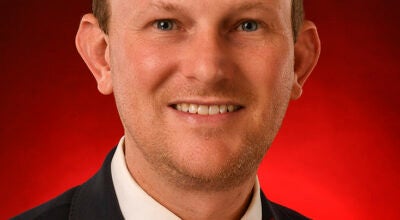Earthquake rocks U.S. politics
Published 11:47 pm Friday, February 12, 2016
What we saw in New Hampshire was a political earthquake. The headlines were dramatic — fittingly so: “Sanders, Trump Stun America,” CNN declared on its website. The American Prospect summed it up with a tidy statement: “The Establishment Sinks.”
The establishment didn’t just sink in New Hampshire — the earth swallowed it whole. Whether this fault line runs through most of America will be revealed as each primary unfolds. Nevertheless, New Hampshire was a major political shakeup with severe political casualties.
In the nation’s first primary, New Hampshire voters flatly rejected the political veterans, men and women alike, in favor of the so-called outsiders.
Ironically, the outsiders, Vermont Sen. Bernie Sanders and businessman and former reality TV star Donald Trump, are establishment figures. Trump has spent his whole life as a “real estate mogul,” a billionaire who hobnobs only with those in power, while Sanders has 35 years holding office from mayor to congressman to senator. Each man is running not against Washington insiders — that’s been done — but against our political system itself, claiming it’s dysfunctional, unfair and so out-of-touch with “We, the People” that only a political revolution can correct it.
In the process, Trump has scared many voters, and Sanders looks like a pied piper luring America’s youth into a Joan of Arc mission. Despite these misgivings, New Hampshire voters of every stripe emphatically voted for our politics to change. Voters demonstrated they’re willing to upend Washington and shake everybody out of it, if that’s what it takes.
This isn’t about ideology. This is a voter revolution based on revulsion with how we conduct politics. However, instead of following President Obama’s advice, voters are looking to a no-frills solution — choosing candidates who talk simply, who seem authentic because they distain nuance, and who reject the same politicians the voters themselves shun. It’s all built on voter distrust, and the failure of leaders to achieve voters’ objectives.
“The future we want,” Obama said in his final state of the union address, “will only happen if we fix our politics. … It’s one of the few regrets of my presidency — that the rancor and suspicion between the parties has gotten worse instead of better.”
The “fix” in New Hampshire was to choose candidates who don’t sound like politicians, who say what the voters have been thinking and who pledge to address their deepest anxieties and fears, and in Sanders’ case, their hopes.
Although Trump got the elephant’s share of media publicity, Sanders got the lion’s share of votes in New Hampshire, racking up 151,584 votes compared to Trump’s 100,406 votes, even though 30,000 more Republicans voted than Democrats. Trump was distinctly a minority winner — more Republicans voted for Trump’s opponents than for him. Trump took only 35.3 percent in the Republican primary, while Sanders achieved a whopping 60 percent in the Democratic contest.
Exit polls painted a stark landscape of voter concerns: Both Democrats and Republicans share a loathing of Washington politics and a profound distrust of entrenched leaders. Democrats and Republicans alike are anxious about the economy. Yet Democrats are focused on income inequality, while the Republicans want jobs.
Republican voters have two fears Democrats don’t share: terrorists and immigrants — and they sometimes don’t distinguish between the two. Voters are being drawn to simple solutions. They’re willing to forgive the absence of details in the hope that simple solutions will work: Wall out the immigrants, and toss out the big billionaires and their money from the halls of Congress.
We knew Sanders’ and Trump’s months-long double-digit leads in New Hampshire would be close to impossible to overcome, even as voters in Iowa were handing victories to Clinton and Cruz. Still, the magnitude of their wins and the abandoning of ideology and partisanship to unite around candidates who have, as Obama put it, “that new car smell,” was gobsmacking.
New Hampshire’s upheaval was felt in every state of the nation. We will see if South Carolina has its own political earthquake, or if it merely registers the tremors from the Granite state. For Clinton, there is no excuse for her loss, just as there was no excuse for Trump’s loss in Iowa.
In July 2015, Hillary Clinton was beating Sanders by 40 points. She lost that lead by running a campaign that has not been able to reach out to the disaffected — however much it holds on to those choosing experience. A truly national leader will have to heal the schisms in both our parties and our nation, if Washington gridlock and dysfunction are to end.
States are like individuals. South Carolinians could vote differently than Iowans and New Hampshirites. There are red and blue states in general elections. But in the 2016 primaries, it’s still the Outsiders vs. The Establishment.
Donna Brazile is a senior Democratic strategist, a political commentator and contributor to CNN and ABC News, and a contributing columnist to Ms. Magazine and O, the Oprah Magazine.


